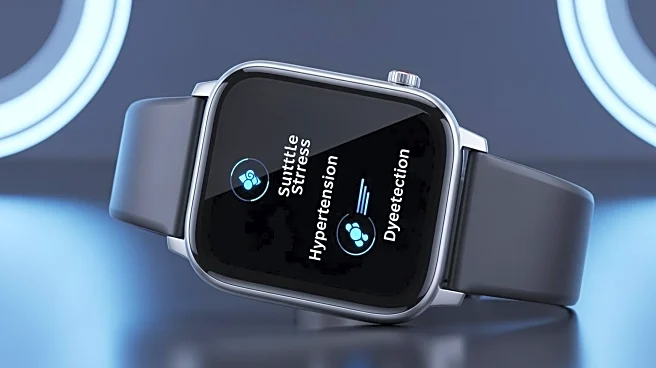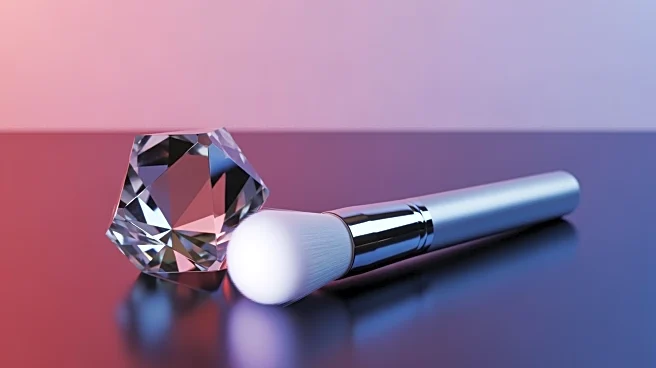What's Happening?
Oura has announced a redesign of its app, introducing expanded stress-tracking capabilities and new features aimed at detecting early signs of hypertension. The updated app will include a Cumulative Stress
feature, providing users with a weekly overview of how their bodies manage and recover from stress, using data from sleep, heart rate, temperature, and activity. This redesign, along with a new stress management dashboard, will be available globally on iOS and Android in the coming weeks. Additionally, Oura is collaborating with the FDA on a blood pressure study, which will be accessible to U.S. members of its Oura Labs early access platform in the coming months. The study aims to develop a feature that identifies early signs of hypertension by combining Oura Ring data with questionnaire information regarding family history, medication, and lifestyle habits.
Why It's Important?
The introduction of these new features by Oura represents a significant advancement in wearable technology's role in health monitoring. By providing users with tools to track stress and potential hypertension, Oura is enhancing its app's utility in preventive health care. This development could lead to earlier detection and management of hypertension, a condition affecting millions of Americans and linked to serious health issues such as heart disease and stroke. The collaboration with the FDA underscores the importance of regulatory approval in ensuring the reliability and safety of health-related features in consumer technology. As wearable devices become more integrated into daily life, their ability to provide actionable health insights could transform personal health management and reduce healthcare costs.
What's Next?
Oura's collaboration with the FDA suggests that the company is committed to ensuring its health features meet regulatory standards, which could pave the way for broader adoption and trust in wearable health technology. As the app's new features roll out, user feedback and data from the blood pressure study will likely inform further refinements and enhancements. Other wearable technology companies may follow suit, increasing competition and innovation in the sector. The success of Oura's new features could also influence healthcare providers to integrate wearable data into patient care, potentially leading to more personalized and effective treatment plans.
Beyond the Headlines
The expansion of Oura's app features highlights the growing intersection between technology and healthcare, raising questions about data privacy and the ethical use of personal health information. As wearable devices collect more sensitive data, companies must navigate the balance between providing valuable health insights and protecting user privacy. Additionally, the reliance on technology for health monitoring may shift cultural attitudes towards self-care and preventive health measures, encouraging individuals to take a more active role in managing their health.










